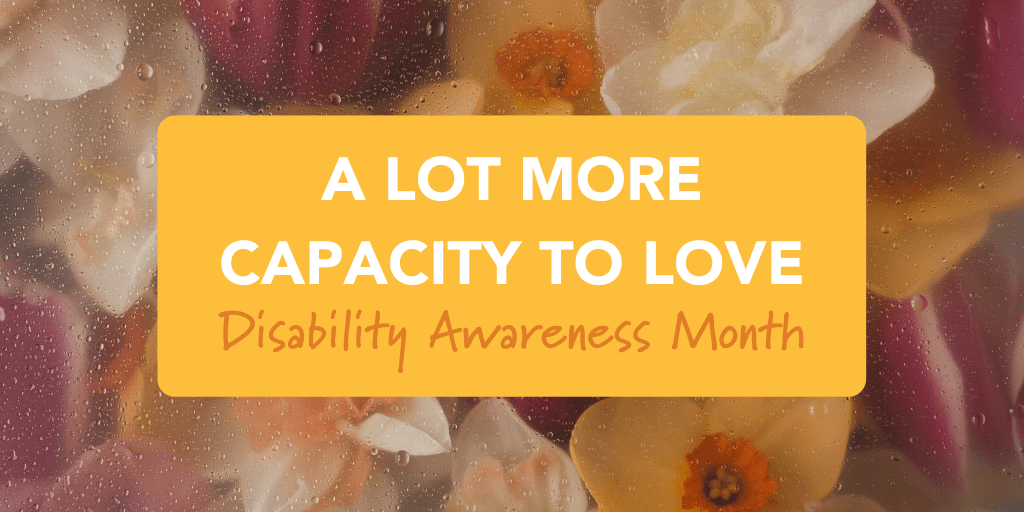On a rainy Monday morning in February, Claire Shonkwiler stood on a stage at Eastwood Middle School, in front of more than 270 eighth grade students, and spoke about her experiences living with autism.
The crowd of eighth graders, spread out amongst the lunch tables, had just begun their school day. Sitting with their friends they chatted, laughed, and waited for the presentation. This was the first time these students were experiencing Joseph Maley Foundation’s Disability Awareness programming at their school, thanks to a district-wide partnership between the Foundation and Washington Township.
Claire stood to the right of the stage, waiting for her introduction from a Joseph Maley Foundation staff member. With a black leather jacket, plaid skirt, and combat boots she looked both confident and calm. Behind her the presentation screen read in big, bold letters: “Claire Shonkwiler: Identity First”.
“It’s always so scary,” Claire commented, when I asked her what it was like to speak to students her age about her disability. “It’s scary, but it also feels so good. Because they’re going to realize ‘Oh my gosh, someone my age is going through this right now.'”
On stage, Claire spoke to students with candor and humor. Through her slideshow she explained what autism is, what “stimming” looks like, and about how hurtful certain words and phrases can be. As the minutes passed by, it was clear that Claire was passionate about advocating for herself. “I’m open about it to pretty much anybody who asks. Or if there is a reason I need to talk about it, I will.” She says she’s especially open with her friends, making sure they know that she might ask if they’re being sarcastic or not, or even to explain their feeling behind a text with an emoji.
At the end of her presentation, Claire began answering audience questions. They ranged from silly (“do you play Fortnite?” or “what’s your favorite band?”) to serious: “are you afraid of being bullied?”. To which she answered: “I am. I’m terrified of it.”
Joseph Maley Foundation’s Disability Awareness program is designed specifically to dispel misconceptions and prejudices about disabilities, and to engender a kinder, more accepting, and more empathetic community through youth education and service. Statistics tell us that our programming remains relevant and vital today, citing that children with disabilities are 2 to 3 times more likely to be bullied than their non-disabled peers (National Bullying Prevention Center).
“When people hear the term ‘autism’, they generalize it,” Claire tells me after her presentation. “I want everyone to remember that people with disabilities aren’t always representative of what the general view of that disability is.”
Speakers like Claire are an integral part of our Disability Awareness curriculum. They bring a face to the disability, and share their unique life experiences with students. Audience members are given the opportunity to ask the questions they’re curious about, in a safe, supportive environment.
Youth speakers are especially impactful. Since our establishment, the Foundation has embodied the strongly held ideal of “kids teaching kids”. Through our Puppets program, which trains eighth grade students to be puppeteers and perform skits on disabilities, acceptance, and respect (and of which Claire is a part of), students learn servant leadership by performing to younger audiences. Our youth speakers are another example of this “kids teaching kids” philosophy.
When asked what she hopes students will take with them from her presentation, Claire responds: “A lot more capacity to love. See us, hear us, and understand us. Love us for who we are.”
Written and researched by Senior Communications Manager, Aubrey Wiest. Special thanks to Claire Shonkwiler for her willingness to be interviewed.
To learn more about any of the programs mentioned in this blog, please visit the links below.
